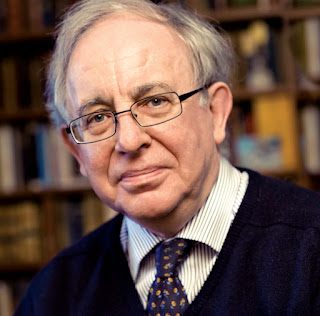Malcolm Deas was an intellectual and Oxford don. This specialist in Colombian, Venezuelan, and Ecuadoran histories, who recently passed away, demonstrated the epoch-defining role historians can play in, yes, altering history, changing the course of nations, and saving lives.
Miami is the unofficial capital of Latin America. That’s a U.S.-centric view, of course, but it’s nonetheless true. So, while here, my thoughts turn south and momentarily away from the depravity that is Hamas and their enablers in Iran.
Deas saw and studied his share of terrorism and civil strife in Colombia, Cuba, and elsewhere in his time. One marvels at the impact his scholarship and ideas had, for example, in helping to craft the relative success story that is today’s Colombia.
Colombia has made serious progress in taming the drug cartels, though the problem will always exist at some level given insatiable U.S. demand for illegal drugs.
Colombia’s imperfect progress comes with building a more accountable, less autocratic government based on civilian rule. Deas was instrumental in advising Colombian leaders over the years, for example, to exert civilian control over the military. His efforts helped construct Colombian security policies and defense infrastructure that knocked the drug lords down to size. Yes, of course, corruption and criminality remain, but the overall forward progress is undeniable.
It would be hard to imagine in the 1980s and ‘90s that once-extremely dangerous, drug-cartel cities such Cali and Medellin would today be legitimate tourist destinations. They are.
Colombia is one of this hemisphere’s notable success stories. That success owes to folks like Deas and leaders in Bogota who dared listen to an intellectual and historian. It also owes to bipartisan support for Colombia’s transition across most U.S. Administrations and Congresses. The infantile Left-Right nonsense that pollutes and often condemns most U.S. policy dialogue and decision-making has not generally consumed our approach to Colombia.
There’s an important lesson here about what can be done in this nation when serious adults choose to work together in bipartisan fashion.
There’s also a Santayana-esque lesson in the power that an understanding of history - and all social sciences and humanities, for that matter - can bring to addressing large, complex problems. It’s not always about STEM or finance, you see. Historians matter, too.
Image courtesy of The City Paper.
